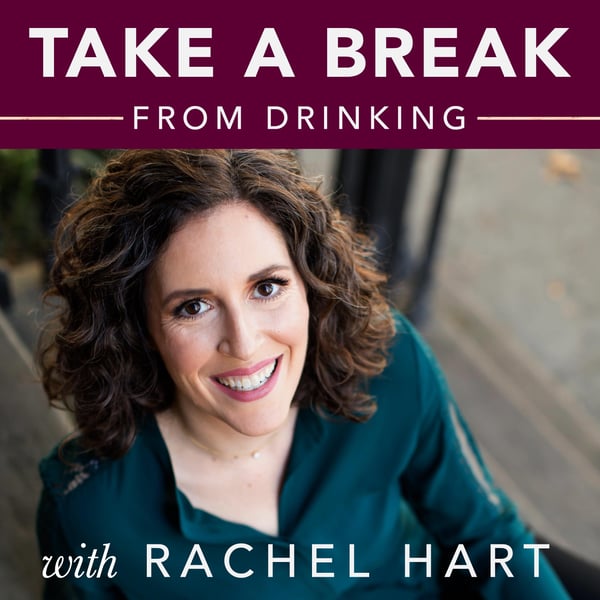70: Triggers
Take a Break from Drinking
Rachel Hart
4.8 • 2.7K Ratings
🗓️ 22 May 2018
⏱️ 30 minutes
🧾️ Download transcript
Summary
In this episode of Take a Break, I want to dig into the idea of triggers, or being triggered, and explain the pitfalls of this word and why you need to start to conceive of it in a different way. Listen in to find out how letting go of the idea that you’re triggered or that someone is triggering can help you with your process of changing your drinking habits and simply feeling better overall.
Get full show notes and more information here: http://www.rachelhart.com/70
Transcript
Click on a timestamp to play from that location
| 0:00.0 | You are listening to the Take a Break podcast with Rachel Hart episode 70. |
| 0:06.0 | Whether you want to drink less or stop drinking, this podcast will help you change the habit from the inside out. |
| 0:13.0 | We're challenging conventional wisdom about why people drink and why it can be hard to resist temptation. |
| 0:19.0 | No labels, no judgment, just practical tools to take control of your desire and stop worrying about your drinking. |
| 0:27.0 | Now here's your host, Rachel Hart. |
| 0:35.0 | Hey everybody, it is a beautiful, beautiful Friday in San Francisco. |
| 0:40.0 | There's a lovely, lovely blue sky. It's been raining all week. |
| 0:44.0 | It's really nice to have a change in weather. |
| 0:47.0 | Today, I want to talk to you about the idea of triggers. |
| 0:53.0 | I hear this word being used all the time. |
| 0:58.0 | And when I am working with clients and teaching them about the ThinkFeel Act cycle and how to use it to change their drinking, but not only that, how to use it to change anything in their life, how to use it to feel better, |
| 1:12.0 | the idea of triggers or being triggered comes up quite a bit. |
| 1:18.0 | And so I want to do a podcast on it just to really dig into it so that you can understand the pitfalls of this word, why you need to start to conceive of it in a different way, and how really letting go of the idea that you are triggered or something is triggering is going to serve you in the process of change. |
| 1:41.0 | And so I want to do a process of changing your habit, but also in the process of just feeling overall better. |
| 1:48.0 | So if you've been listening to the podcast, you heard in episode 32 where I talk about the habit cycle and in that podcast, I talk a lot about this idea of a cue. |
| 2:00.0 | Because triggers and cues are often confused, right, when I start talking about this idea that we have these signals that tell our body, it's time to do something or signals that tell our mind, it's time to start a habit. |
| 2:19.0 | So I often replace the word cue with trigger. And so I want to talk a little bit about what I discussed in episode 32 about cues so that we can have that baseline knowledge before we talk about the idea of being triggered. |
| 2:34.0 | So a cue is just a signal. It's a signal to your body and your body uses it to tell it when to do something. |
| 2:43.0 | So if you think about the cues that your body uses that are connected to your circadian rhythm, right, one of them is the sun rising. |
| 3:00.0 | That is a cue for your heart rate, for your blood pressure, and for your body temperature to all rise. |
| 3:05.0 | So as daylight comes up, our body gets that cue that is intrinsic. It is outside of your control. |
| 3:12.0 | But other cues, and these are the ones that I really focus on when helping people learn how to change the habit of drinking are cues that are learned signals that we unconsciously taught our mind to use as a moment when the mind learns to expect a reward. |
... |
Please login to see the full transcript.
Disclaimer: The podcast and artwork embedded on this page are from Rachel Hart, and are the property of its owner and not affiliated with or endorsed by Tapesearch.
Generated transcripts are the property of Rachel Hart and are distributed freely under the Fair Use doctrine. Transcripts generated by Tapesearch are not guaranteed to be accurate.
Copyright © Tapesearch 2025.

